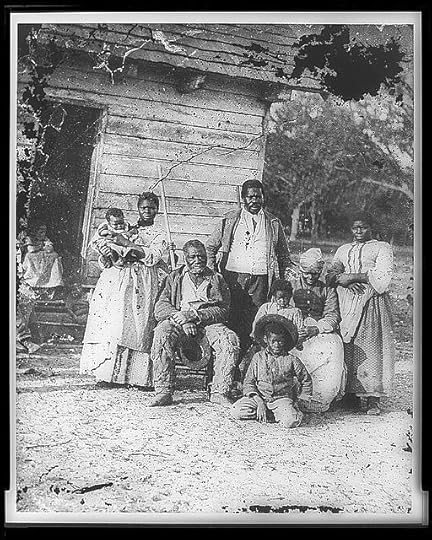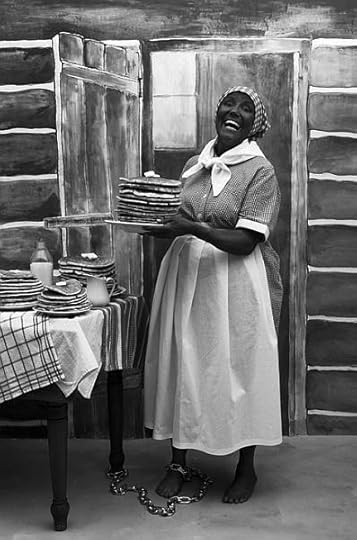Lilian Nattel's Blog, page 39
May 22, 2011
it's ok to be Takei
May 21, 2011
Sunshine and Self-Publishing
We have a sunny day today between last week's rain and next week's. I woke up listening to the birds singing loudly, making up for lost time. There are nests to build! Eggs to sit upon!
Yesterday I spent the day shopping with my older d, getting ready for a school trip. Next week I will wake up to say good-bye to her in the very early morning of the day she leaves, but I'm sending A to take her to the pick up point. I don't dare. I will bawl my eyes out. I'm tearing up just thinking of it.
Now on to the self-publishing point of the post. The other day while in the bathroom, I picked up one of the picture books left on the floor by children for toilet reading. One of them was Three Stories High: The First Big Bungalo Boys Book by John Bianchi. I laughed while reading it, admiring his verve and imagination. Bianchi's books have always been favourites for my kids.
So I was surprised to read this at the end of the book:
Last of the Tree Ranchers was the first title published by Bungalo Books when John and a friend, author/editor Frank B. Edwards, started the company in 1986. Since then, the pair have created 21 books together. They celebrated the printing of their one-millionth copy in the spring of 1995.
This is an old-fashioned, pre-ebooks self-publishing success story. Hurray for John Bianchi who has brought pleasure and smiles to millions of readers through his talent, endeavour and optimism.
For more on Johns Bianchi see his website here and Bungalo Books here.
Filed under: Fun, Literary Tagged: Bungalo Boys, John Bianchi








May 19, 2011
this is an OMG photo from Iceland
what came first, farming or religion?

via ngm.nationalgeographic.com
This is Göbekli Tepe, standing structures in rings that are reminiscent of Stonehenge, but older and bigger. On a hill in southern Turkey, these boggle the mind in size and age, 11,600 years old.
The conventional wisdom is that people were hunters and gatherers, then settled in small villages to farm, then formed complex societies with some people on top ordering larger numbers of people around. To, for example, build temples.
But this structure and other evidence says, uh, no. That wasn't how it was. Foragers built this thing, and foragers also settled in villages. Click the link above to read the whole story. It's still mostly speculation, but fascinating.
Filed under: Miscellany








May 18, 2011
coffee without shame
Turns out, it is good for you all over–but i'm 4 cups a day short. The Atlantic http://ow.ly/4XJP9
Filed under: Miscellany








Philip Roth winner of International Man Booker Prize, judge resigns
Calling him the "most decorated living American writer," a panel named Philip Roth the winner of the Man Booker International Prize on Wednesday, an honor awarded every two years to an author for extraordinary work in fiction. The decision prompted one of the judges to withdraw from the panel.
via artsbeat.blogs.nytimes.com
That was Carmen Callil, the founder of Virago, the eminent UK feminist press. The International Man Booker, as opposed to the annual, is for a body of work. Callil said Roth "goes on and on about the same subject in every book." She'll have an essay about it in the Saturday Guardian.
Filed under: Literary Tagged: Philip Roth Man Booker








May 17, 2011
Nancy Drew 1939
When I was around 10, my best friend had the best house. She was allowed to drink pop, read at the dinner table, or watch tv on tv trays with glasses of pop. She also had comic books, a Nancy Drew game and a big pile of Nancy Drew books.
Nancy Drew was created by Edward Stratemeyer, a prolific writer himself, who founded the Stratemeyer Syndicate to produce kids' books en masse, including The Bobbsey Twins (1904), which I also remember fondly, The Hardy Boys (1927) and Nancy Drew (1930).
From the beginning, his idea was that these series would be authored under a consistent pen-name regardless of whomever he, and his successors, hired to write the books. There have been many authors writing as Carolyn Keene over the years, and Nancy's character has changed, bolder in the beginning, more sedate in the 50′s, now the driver of a hybrid car.
I was thinking about this last night, apropos of our conversation about the dearth of female characters in children's books, as I watched Nancy Drew: Reporter, made in 1939. While there are complaints that the movie largely diverged from the books in specifics, I think it's true to its spirit, and I was happy to watch it with one of my daughters (the other preferred to browse nhl.com on her computer).
Though most of the minor characters are male in male environments (newspaper room, boxers' gym), the important characters are 50-50, with the girls taking the lead. Nancy is feisty, inventive, tricky, righteous and concerned, not with her appearance, but with whether she is acting intelligently in solving the murder mystery.
An old woman has died, leaving her fortune to her foster daughter, who has been framed for murder. An aspiring reporter, Nancy believes in her innocence and sets out to find the evidence to free her and incriminate the real murderer.
Along the way she's assisted by her sometimes reluctant friend and photographer, Ted. Their actions are paralleled by another younger team of kids. Tagging along and getting into trouble are Ted's younger sister, equally feisty but naughtier than Nancy, and her friend, a boy who follows her lead, both of them 13 years old.
There is some suspense and waving of guns, but nothing seriously scary here. I also enjoyed the bit part of the police officer who dresses up as a granny to trap the evil-doers. It's less broad than pantomime usually is, rather gentler as I didn't have the sense of mockery than pantomime often has because there is no sense of humiliation in the cross-dressing here.
There is a more recent Nancy Drew movie (2007) that I watched with my younger daughter, too, that was fun but in it Nancy was a bit too 1950′s perfect (including wardrobe). I like the 1939 Nancy better.
The Syndicate sold the series to Simon and Schuster who dropped the Nancy Drew in the title and just called it Girl Detective. Not a good change to my mind, but Nancy has been around for over 80 years, and she'll outlast that title too.
[image error]
via Chronicle Books
Filed under: Fun, Literary Tagged: Nancy Drew movies








May 16, 2011
The Help: A Reaction
I can't review The Help by Kathryn Stockett because I gave up after a few chapters. I know that I'm in the minority. A very small minority. On Amazon, about 3000 people gave it 4-5 stars, and only a couple hundred less.
I would probably have read it except that I had 2 other ebooks from the library that would expire before I got to them, and I didn't like The Help enough to wade through it.
So here, in brief, is my reaction. I'm not familiar with the southern dialect to know if it was accurate (though from what I read online it wasn't). What I could see was that the dialect wasn't consistent, the author's voice breaking in with middle-class contemporary attitudes as well as phrases. And I didn't really believe the maids as characters. They held me and lost me, held me and lost me too many times in 50 pages.
Unfortunately, the African-American characters all spoke dialect, the White characters standard English. That inconsistency makes no sense. Some people have criticized The Help for relying on stereotypes of the Gone With the Wind variety (another very successful novel). I didn't get far enough into the book to have an opinion on that. What I can say is that for me The Help didn't have sufficient entertainment value to overcome some weaknesses that became apparent early on.
Is this an interesting subject? Definitely. But I think it would have been a better book had Stockett immersed herself in the environment she was writing about. Living away from there, relying on her own adolescent impressions and memories (of a later era) wasn't enough of a resource. Of course, at least according to Amazon, I'm in a 6% minority on that. Stockett wrote to satisfy herself and she lucked out in satisfying a lot of other people too.

Family of African American Slaves, South Carolina 1862

Aunt Jemima, photo by Sally Stockhold
Filed under: Literary Tagged: writing in another voice








May 15, 2011
6000 kid's books over 100 years: where are the girls?
The study also found that:
Males are central characters in 57 percent of children's books published per year, while only 31 percent have female central characters.
No more than 33 percent of children's books published in any given year contain central characters that are adult women or female animals, but adult men and male animals appear in up to 100 percent of books.
Male animals are central characters in more than 23 percent of books per year, while female animals are in only 7.5 percent.
On average, 36.5 percent of books in each year studied include a male in the title, compared to 17.5 percent that include a female.
Although books published in the 1990s came close to parity for human characters (with a ratio of 0.9:1 for child characters; 1.2:1 for adult characters), a significant disparity of nearly 2 to 1 remains for male animal characters versus female.
via sciencedaily.com
This comes as no surprise to me, though it's still sad to see the numbers crunched. I've noticed this about kids' books. Publishers' wisdom: girls will read books featuring boys, but boys won't–so go heavy on the boys and throw in a girl now and then. Something's got to change.
Filed under: Miscellany








women in science: the cartoon
Lilian Nattel's Blog
- Lilian Nattel's profile
- 133 followers






























